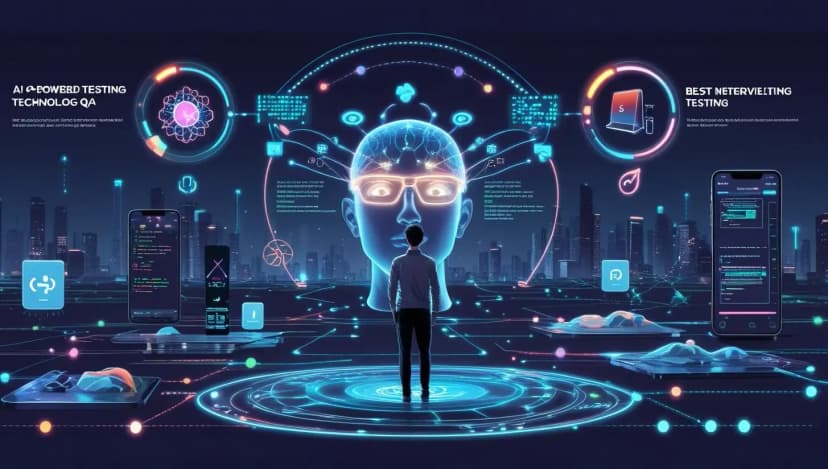If you’ve ever found yourself pondering which tech trend is worth chasing to keep up in the fast-evolving world of quality assurance, you’re in the right place. QA isn’t just about finding bugs anymore—it’s about creating seamless, efficient systems that are future-ready. Let’s dive into the emerging technologies transforming QA support and discover where your learning journey should begin.
The Evolution of QA Support
Back in the day, QA was a manual game: click here, test there, log a bug, and repeat. Fast forward to today, and we’re working alongside AI algorithms, employing automation frameworks, and even dabbling in robotic process automation (RPA). These advancements have not only made QA faster but also more insightful, driving us toward predictive quality and proactive issue resolution.
But what’s next? Here’s a closer look at the game-changing technologies redefining QA.
Top Emerging Technologies in QA
Let’s decode the hottest trends reshaping the world of QA support.
1. Artificial Intelligence (AI) and Machine Learning (ML)
- What It Does: AI enables test case optimisation, defect prediction, and intelligent automation. ML learns from past data to identify patterns, boosting accuracy in bug detection.
- Pros: High efficiency, better test coverage, predictive analytics.
- Cons: Requires investment in tools and training.
- Where to Start: Tools like AI Application Testing can help you explore this field.
2. Robotic Process Automation (RPA)
- What It Does: Automates repetitive tasks like regression testing and data entry, freeing up your time for creative problem-solving.
- Pros: Reduces human error, speeds up processes, cost-efficient.
- Cons: Limited to structured processes.
- Where to Start: Explore Automation Testing Services to dive into RPA.
3. IoT and Smart Device Testing
- What It Does: Ensures seamless communication between interconnected devices. Think smart homes, wearables, and industrial IoT systems.
- Pros: Addresses real-world use cases, ensures reliable device integration.
- Cons: Highly complex scenarios require specialised knowledge.
- Where to Start: Check out IoT Device Testing Services for hands-on expertise.
Quick Comparison of Emerging QA Technologies
| Technology | Pros | Cons | Use Cases |
|---|---|---|---|
| AI and ML | Intelligent testing, predictive analytics | Requires tools and training | Bug prediction, test case optimisation |
| RPA | Automates repetitive tasks | Limited to structured processes | Regression testing, data migration |
| IoT Testing | Real-world device integration | Complex scenarios, high expertise needed | Smart devices, wearables |
Future Trends in QA Technology
- Predictive QA: Leveraging AI to predict potential failures before they occur.
- Hyperautomation: Combining AI, RPA, and ML for end-to-end automation.
- Blockchain for QA: Ensuring transparent and immutable data in critical systems.
- Codeless Automation: User-friendly tools enabling non-tech teams to automate tests.
QA is evolving from reactive to proactive. The sooner you adapt, the better your career prospects.
How to Get Started
- Research and Upskill: Start with foundational courses in AI, ML, or RPA.
- Experiment with Tools: Try platforms like Selenium, Appium, or TestComplete.
- Learn on the Job: Join projects that involve testing with emerging tech.
- Collaborate and Network: Engage with QA communities and tech forums for insights.
Conclusion
The future of QA lies in adopting cutting-edge technologies. Whether you choose AI, RPA, or IoT testing, investing in learning will future-proof your career and make you a sought-after QA professional. Ready to take the plunge? Explore our QA services or contact us to learn more about how we can help you grow.
About Nandini Yadav
Expert in QA Testing with years of experience in software testing and quality assurance.
Found this article helpful?
Share it with your team!
